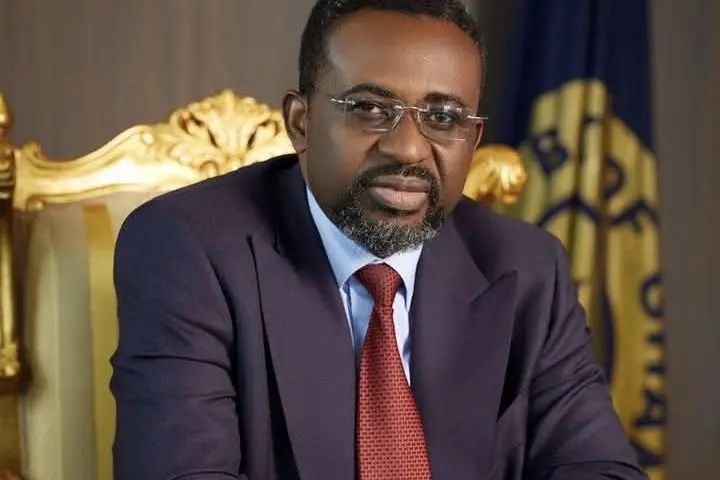By Stephen Apolima | Accra/Lusaka | May 28, 2025
Ghana’s central bank governor, Dr. Johnson Asiama, on Wednesday delivered a measured but optimistic assessment of Ghana’s economic outlook, positioning the country as a rising destination for private capital on the African continent. Speaking at a high-level private investor roundtable organized by Invest Africa in partnership with Standard Chartered on the sidelines of the African Development Bank (AfDB) Annual Meetings in Lusaka, Zambia, Dr. Asiama urged investors to look beyond recent volatility and recognize what he described as a fundamental shift in Ghana’s economic direction.
Under the theme “De-risking Growth: Building Confidence in African Sovereign Finance,” the Governor’s keynote message was clear: Ghana is not simply seeking capital—it is building the conditions to earn investor confidence.
“We are not just restoring macroeconomic stability. We are rebuilding credibility,” Asiama stated. “Confidence is our most important currency.”
A Narrative of Stabilization
The Governor’s remarks come at a time when Ghana is seeking to emerge from one of its most turbulent macroeconomic periods in recent history. After experiencing acute inflation, a sharp currency depreciation, and external financing pressures in 2023–2024, the government embarked on a comprehensive stabilization program supported by the International Monetary Fund.
According to Dr. Asiama, the strategy is already producing measurable results:
- Real GDP growth for 2024 reached 5.7%, with 4.0% projected for 2025.
- Inflation has eased to 21.2% in April 2025, down from 23.8% in December 2024.
- Ghana’s gross international reserves rose to $10.67 billion, providing 4.7 months of import cover.
- The cedi has appreciated by 21.5% year-to-date, reversing a 19.2% depreciation in 2024.
- A current account surplus of $2.12 billion and a $4.14 billion trade surplus were recorded in the first four months of 2025.
Credit agencies have responded in kind. Standard & Poor’s upgraded Ghana’s sovereign rating from Selective Default (SD) to CCC+, citing improved fiscal discipline and external account performance.
Structural Shifts Behind Cedi Strength
Dr. Asiama pushed back against skepticism surrounding the cedi’s recent appreciation, arguing that the gains are underpinned by fundamental changes in policy and market conditions. He cited rising gold revenues—buoyed by a global surge in gold prices to over $3,200 per ounce, Ghana’s successful Gold-for-Reserves program, and increased remittance inflows as evidence of underlying strength.
“The market has changed. The policy environment has changed. The cedi’s strength is not an illusion,” he declared.
The central bank has also recalibrated its liquidity management strategy, replacing the traditional unremunerated cash reserve requirement with active open market operations aimed at controlling inflation and supporting credit expansion.
Policy Stability as Investment Magnet
In making the investment case for Ghana, Dr. Asiama emphasized not only macroeconomic stability but also institutional credibility. He pointed to the resilience of Ghana’s financial system, with capital adequacy ratios holding at 15.8%, and an ongoing regulatory push to support fintech innovation, digital payments, and inclusive finance.
Key sectors identified for investment included green energy, digital infrastructure, agribusiness, and manufacturing value chains aligned with the African Continental Free Trade Area (AfCFTA).
Regional Integration and Reform-Driven Growth
Ghana’s leadership within AfCFTA and its efforts to harmonize regional fintech regulation, payment systems, and cross-border financial oversight were also highlighted as key drivers of long-term investment viability.
In closing, the Governor extended a clear invitation to global investors: to view Ghana not as a high-risk frontier, but as a maturing economy committed to reform and accountability.
“The Ghana opportunity is not theoretical—it is real, it is unfolding, and the time to engage is now,” he said.
The address was widely received by attendees from investment firms, development banks, and sovereign wealth funds as a confident and coherent pitch for a country seeking to reclaim investor trust and sustain economic momentum through disciplined governance and bold reforms.




